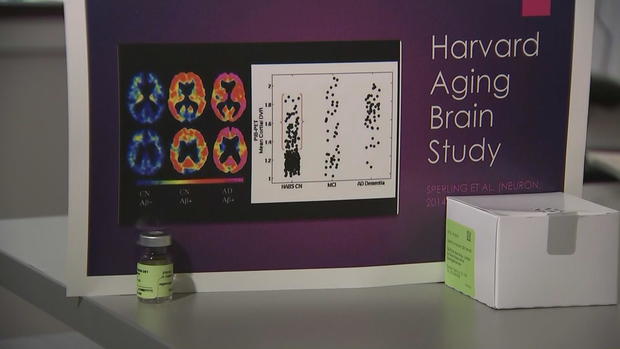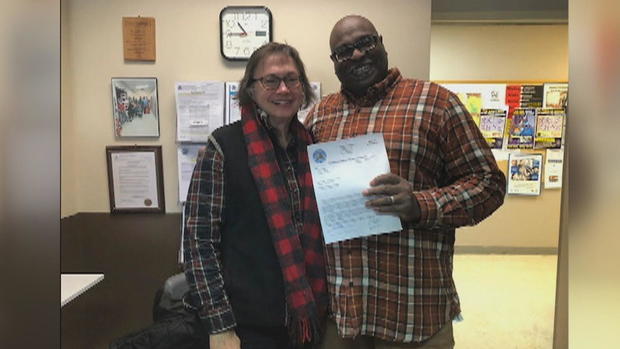Philadelphia tests FDA-approved drug for Alzheimer's disease in The AHEAD Study trial
PHILADELPHIA (CBS) -- Can Alzheimer's disease be prevented? It's something millions of families are hoping will eventually be possible.
It's called The AHEAD Study. People around the country and in the Philadelphia region are testing a drug that's already FDA-approved to slow early-stage memory loss. Researchers are hoping it can also prevent Alzheimer's.
Kelley and Jolene Ewing laugh about their fight against dementia but it's a serious struggle.
"I don't mind saying I have Alzheimer's," Jolene Ewing said. "I don't cause I think people need to know that."
Jolene is taking medications hoping to slow the brain-robbing disease that her mother also struggled with.
"It was just horrible watching her just spiral downhill," Kelley Ewing said.
Brain scans show Kelley also has an amyloid plaque in his brain that will eventually cause Alzheimer's.
"The amyloid protein collects in the brain for 20 years before the first symptoms of just forgetfulness come up," Dr. Cherian Verghese said.
Dr. Verghese with Keystone Clinical Studies in Plymouth Meeting is testing the drug lecanemab in the AHEAD trial to determine if it can also prevent Alzheimer's. It's already approved to treat early-stage memory loss.
"It goes into the brain and breaks up the amyloid I call it liquid plumber for the brain," Verghese said. "It goes in and breaks up the bad stuff."
Kelley has joined the AHEAD trial where participants will get either lecanemab or a placebo.
"There isn't a cure yet but I'd love to think I'd be a piece toward going toward a cure," Kelley Ewing said.
Doctors say his participation is important because African Americans are twice as likely to develop Alzheimer's but have been reluctant to be in clinical trials.
"From a scientific and health equity perspective we need to make sure that studies reflect the face of America," Verghese said.
"If there are not many Blacks participating in trials then the results are not going to be geared as much to African Americans to help with the cure," Kelley Ewing said.
For this couple married 32 years, it's a battle they say they'll fight holding hands all the way.
"We'll work it out together," Kelley Ewing said.
The drug being tested does have some side effects, including brain swelling, but that can be controlled.
The AHEAD Study is looking for more people who are at risk to test the drug.






